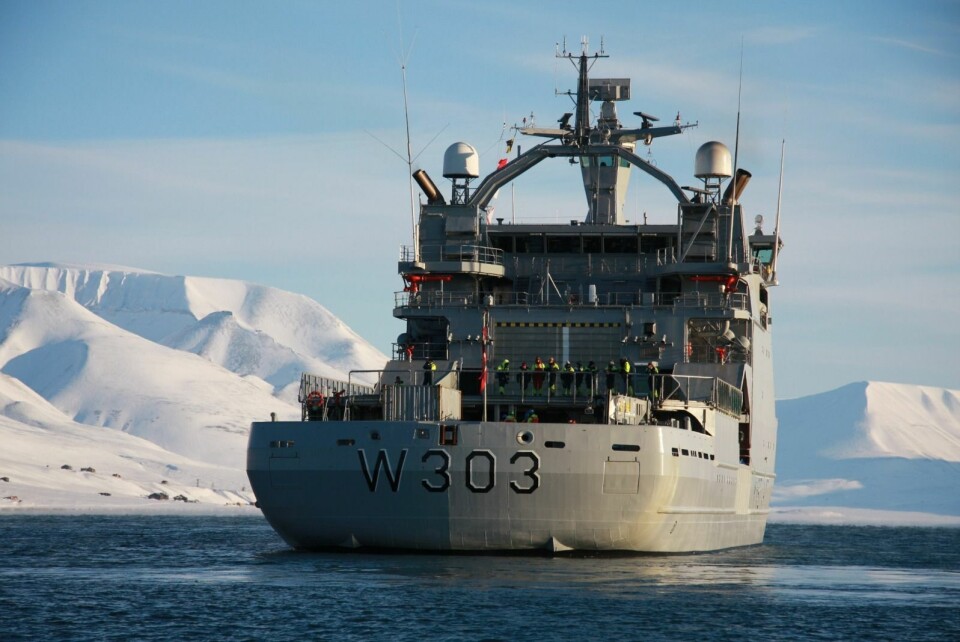Petroleum may awaken new requirements
"Challenges to Norway's exercise of jurisdiction will only be possible if countries see any interest in the area. Without oil and gas, the shelf around Svalbard becomes uninteresting."

Denne artikkelen er mer enn 10 år gammel.

Svalbard is exciting in so many ways. Svalbard is both a small place in the Arctic Ocean, and an interesting – and complex – place where international politics, international law, sovereignty and the interpretation of a treaty have an absolutely central place. Nobody disputes that Norway has received the "full and absolute sovereignty over Spitsbergen," as it says in Svalbard Treaty, but how far Norway can go in its exercising its sovereign authority has been the core issue since Svalbard was incorporated into the kingdom in 1925. The main trend is the limits of our sovereignty have increasing expanded: While in 1925 Norway's role was considered almost as an administrator of Svalbard on behalf of the world community, today is is Norway's ideal that Svalbard should be controlled to the maximum extent possible as mainland Norway, but the limitations the treaty explicitly stipulates. Most important is the signatory citizens have unimpeded access to, and to stay on Svalbard, and that they be able to "operate unhindered in manners of maritime, industrial, mining and commercial activities on completely equal footing, provided they have the rights themselves, according to the local laws and regulations." Norway has no opportunity to tax activities in Svalbard to a greater extent than what is needed to cover the management of the archipelago. Svalbard has nevertheless not become a tax paradise à la the British Channel Islands or some Caribbean island nations. Nor has Svalbard become a particularly large magnet for refugees or adventurers – something we can thank the geographic location and inhospitable climate for.
Svalbard Treaty at 90 year – a success story?
Rights as an economic zone
Around Svalbard is a large ocean area and an even larger continental shelf. The sea is rich in fish, and the shelf may contain substantial petroleum resources. The extent of those resources is not known and perhaps that is just as well for those seeking to enrich themselves in ways filled with controversial questions. At the time the Svalbard Treaty came into being there was obviously no talk about drilling for oil beneath the Arctic Ocean seafloor. Nor did cod fishing present itself as particular attractive. But with the development of modern fishing gear and ocean-going trawlers the issue of regulating fishing at sea, as well as division of the sea in coastal state zones, pushed itself forward. In 1976, Norway's exclusive economic zone was created off the mainland coast; the plan was to create a similar zone around Svalbard (and Jan Mayen). In Norway's view, such a zone around Svalbard was not affected by the Svalbard Treaty's requirement of equal treatment: the treaty applied only to the Svalbard archipelago and the territorial waters, and said nothing about economic zones. Therefore, Norway also had the right to establish a Norwegian economic zone around Svalbard. Similarly, Norway, increasingly in the view of Norwegian authorities, had rightful jurisdiction over the continental shelf around Svalbard. Therefore the treaty should also not apply to the shelf (what is on and under the seabed, unlike the marine resources in the so-called water column).
Gentlemen's agreement
Such a view did not fall on fertile ground in the Soviet Union or among our allies, and therefore in 1977 Norway created something they called the Fisheries Protection Zone, almost to emphasize the restoration of noble purpose. The country reserved the right to create an economic zone when the time was ripe for this, but in the meantime would administer the zone as if it were covered by the Svalbard Treaty's requirement of equal treatment. Essential for keeping the conflict level down was conducting a so-called lenient treatment in the exercise of authority, meaning avoiding resorting to sanctioning offenses in the Fisheries Protection Zone. Even for serious violations of fisheries regulations, the Norwegian Coast Guard avoided resorting to penalties. A gentlemen's agreement between Norway and the Soviet Union went as such: the Russians made no effort to formally acknowledge the Fisheries Protection Zone, but accepted Norwegian inspections aboard their trawlers. Norway, for its part, refrained from resorting to penalties. This understanding was important when the Soviet Union was clearly the most important fisheries actor in the Fisheries Protection Zone. The understanding also depended on the two countries having a common responsibility for managing the fish stocks that migrated back and forth between the two countries' zones in the Barents Sea. Other countries with interests in the area had gone to great lengths in suggesting the Svalbard Treaty must apply in fishing zones or, as the UK for a long time did, reserved the right to express their stance at a later date.
Accusations
With the Soviet Union's collapse and subsequent tendency toward disintegration that occurred in Russia's economy and society, fisheries management in the Barents Sea faced new challenges. Russian trawlers, now in private hands, got an incentive to go beyond their quotas as the market economy entered into Russian reality. Meanwhile, they could sell fish abroad and thus avoided Russian enforcement mechanisms, which were largely onshore. "Overfishing," "cheating" and "illegal fishing" dominated many a headline in Norwegian newspapers. Tougher controls forced themselves forward, but it was an Icelandic trawler under a flag of convenience that in 1994 received the dubious honor of being the first foreign trawler arrested in the fishing zone. The first arrest involving a Russian trawler occurred in 2001 when the Chernigov was detained and brought to port in Tromsø, accused of gross environmental crimes. Russia's Foreign Ministry protested sharply: Norway broke international law by detaining the Chernigov in international waters, according to Moscow. Similarly accusations have come from Iceland and Spain, who on several occasions have also threatened to bring Norway before the International Court of Justice. So far, however, no one has seriously followed through on those threats despite the Coast Guard becoming stricter and more consistent with its enforcement over time. The number of arrests has nevertheless fallen in recent years, partly because enforcement mechanisms have improved. What is interesting for us is that while Russia was in 2001 protesting alleged violations of the law by Norway, it has since either refrained from protesting, or protesting what they believe is a violation of good manners and good neighborliness, that the Coast Guard has overreacted, that the penalties not proportionate to the violation, and so on. In other words, Russia is no longer protesting the fact Norway has control and imposes sanctions, but on how Norway exercises this role. Other countries have mentioned nor done anything to challenge Norway's exercising of its jurisdiction beyond verbal threats about going to Court of Justice in The Hague. Therefore it may seem that Norway's position – that we have the right to establish a Fisheries Protection Zone – is stronger than ever today. This is obviously because most countries don't see it as in their interest to challenge the status quo. No responsible country would be served by allowing fishing without regulation and, although the Svalbard Treaty should be applied, it is not so that all signatories citizens should be able to fish freely, or on equal terms. Fish stocks in the Barents Sea are jointly Norwegian-Russian and quota ceilings are jointly agreed to by the two coastal states. Third-party countries may be allocated quotas by historic right.
Explosive strength
What lies beneath the shelf around Svalbard, we know little about, but it is not inconceivable the petroleum resources are significant. The question of jurisdiction and ownership therefore has greater explosive power than what's under the seabed. It is now indisputable that in 2009 in New York the United Nation's Commission on the Limits of the Continental Shelf approved the Norwegian requirements for shelf boundaries – these coinciding or slightly outside the limits of the Fisheries Protection Zone. No countries have objected to this limitation, which strengthens the possibilities of Norway's jurisdictional exercise. In 2010, Norway and Russia signed the so-called delimitation agreement, which put an end to 40 years of negotiations. In the agreement, Russia acknowledged the shelf west of the line is under Norwegian jurisdiction. It also declares the sea over the shelf – the Fisheries Protection Zone – is under Norwegian jurisdiction, subject to the Svalbard Treaty's limitations. This also appears to be the perception of other countries: Norway has jurisdiction, but we must be prepared for the Svalbard Treaty's principle of equal treatment to be required.
Uninteresting
We can live with that. And Norway can keep the continental shelf around Svalbard from becoming an oil assessors' paradise simply by letting any petroleum resources lie where they are. Challenges to Norway's exercise of jurisdiction will only be possible if countries see any interest in the area. Without oil and gas, the shelf around Svalbard becomes uninteresting – and then the Norwegians can exercise as much control as they please. For the time being, we can at any rate conclude the acceptance of Norwegian jurisdiction in the waters around Svalbard is increasing.
Translated by Mark Sabbatini
